Is our educational philosophy sustainable?
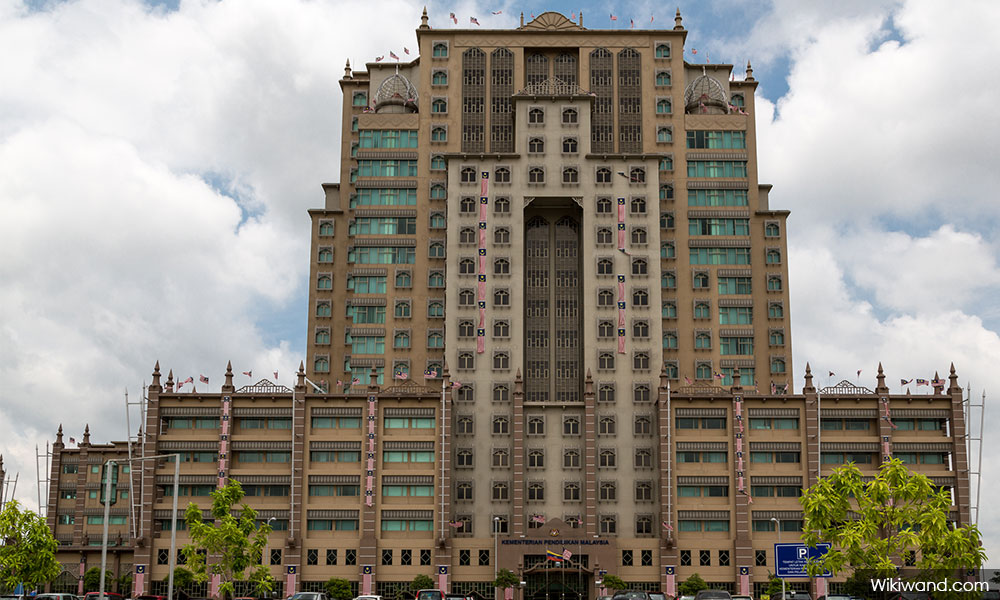
COMMENT | I recently came across a recording of a retired principal, V Chakaravathy, ranting at the reigning tsar of the education regime Maszlee Malik in a dialogue session organised by the Asian Strategy and Learning Institute (Asli) in Subang Jaya.
The arguments took me back to my schooldays in Sekolah Temenggong Abdul Rahman I (Star 1) in Johor Bahru, back in the late 1960s and early 1970s.
Listening to the principal having a go at the minister reminded me of Star 1's own principal PV Kulasingam. This no-nonsense educator was much feared. He had a stable of teachers of various cultural backgrounds.
I still remember the name of those great educators of my life and times, D Varma, Wong Seng Kuang, Ho Liang Kho, Elizabeth Tan, Cikgu Hasan. I remember the name of the office boy as well, Pakcik Seman.
That was the time of tuck shops, sepak yem, bola chopping, and only prefects wearing ties. The 'tablet' was not an iPad, and learning was fun in a school where English was the medium of instruction.
I did not remember much homework given to be completed at home under the light of my kerosene lamp, since I could still play soccer to my heart’s content every evening after school.
I could still roam around my village after school, playing in the nearby stream to catch fish and grasshoppers, roll old bicycle tyres around the neighbourhood, or walk along the huge water pipes that sent refined water to Singapore, and I could still watch my black-and-white American and Malay TV programmes, the two channels in Malaysia and two more from Singapore.
In school were the basics of reading, writing, counting, and speaking taught with not much stress, as I recall. I thank the universe the internet, iPhone and all other kinds of dehumanising and life-distracting gadgets had not been invented yet.
I could relate to what Chakaravathy was saying on the topic of how today’s children are experiencing a slow but sure death of creativity and problem-solving.
I lamented on the state of our country on Facebook recently:
How can this happen?
How can
A country even begins to learn about the ethics
Of sustainability,
When the powers that be
Continue to take away people's land
To build golf courses and resorts aplenty,
In a framework of power erected that bulldozes
The wishes of the people entirely,
Of broken promises that were made to be broken
At the start of the game of deceit actually,
Of a game of politics that do not care
About the wishes
Of the people entirely,
Of showcases and drama
Of fighting corruption trumpeted daily yet in the inner world and circles of power
Lies the core of a game unbeknownst to the rakyat entirely,
Of deals behind closed doors to prolong the life of families of dynasties,
Of this and that educational change sung
To the tune of ransom and baits and sticks and carrots way too many,
As if we are all merely pawns to be offered bread and circuses daily,
Ao that the old game of rule of the one too many of one and only
Can become yet another game called hegemony, fed
In a huge beggar's
Banquet
Called
Idiocy.
A darker spring, we foresee …
A country even begins to learn about the ethics
Of sustainability,
When the powers that be
Continue to take away people's land
To build golf courses and resorts aplenty,
In a framework of power erected that bulldozes
The wishes of the people entirely,
Of broken promises that were made to be broken
At the start of the game of deceit actually,
Of a game of politics that do not care
About the wishes
Of the people entirely,
Of showcases and drama
Of fighting corruption trumpeted daily yet in the inner world and circles of power
Lies the core of a game unbeknownst to the rakyat entirely,
Of deals behind closed doors to prolong the life of families of dynasties,
Of this and that educational change sung
To the tune of ransom and baits and sticks and carrots way too many,
As if we are all merely pawns to be offered bread and circuses daily,
Ao that the old game of rule of the one too many of one and only
Can become yet another game called hegemony, fed
In a huge beggar's
Banquet
Called
Idiocy.
A darker spring, we foresee …
Our point of no return?
Have we arrived at a point of no return?
The current state of education in Malaysia, after six decades of independence, lacks excellence and the rigour, the political will to recognise equity and equal opportunity, and empathy in looking at the class divisions forming in the process of schooling.
It is slow in restructuring society based on the alleviation of poverty regardless of race. It has failed in its commitment to instil the spirit of muhibbah – a concept the current government had asked children to sing to in the early 1970s.
It is, in fact, using more sophisticated ways to divide and rule society so that the hegemony of race-based politics will continue to become the status quo.
We are at a critical juncture of a point of no return in education. The conveyor belt of our nationalistic-tribalistic education philosophy is going haywire, sending our batch-processed children off-tangent in this Rostowian ideology of progress.
What a waste of talent and human capital. Instead of turning them into learners that bloom, we are making them bricks in the wall.
But first things first. Let us first commission a brand new study on dropouts, using good qualitative and quantitative data, and find strategies based on the principles of sustainability and human rights to deal with it.
Our nation is actually in danger of a major human development crisis, compounded by the current oil, environmental, and food crisis. We have not even talked about the economic and psychological crises, or even the drug scourge.
The regime changes of May 9, installing a promising new agenda for developmentalism and ending up a year later of the same old, same old addiction to race and religion, needs a new means to sustain human development and social change. It has the potential for political, cultural, and educational renewal.
We Malaysians must rise beyond the current national-political crisis that is imploding and exploding multi-directionally against the backdrop of a world that is perpetually in crisis.
Lamenting like the principal
When crooks and robber barons plan to destroy mangrove forests and nobody dares speak up, we have a failed education. We cannot continue to allow religious schools to be heavily funded. Do you know that Islamic State jihadists are now focusing on Southeast Asia?
We also cannot keep running to the prime minister and ask "what kind of change do you want, sir?" That's a butler's job. It seems that our educational leaders do want change, but do not know what a changed society should look like.
The proposal to impose fines for students who do not finish high school is utterly ridiculous. Study the root cause. Parents' frustration is that the world has rapidly changed, but our education system is still mundane. We cannot survive globally.
I wish that our educational leaders could not only master diverse educational philosophies, but the art of teaching. Teaching is a subversive act. The ongoing purpose is to question dogma, dictators, and the degeneration of race and religious politics. To live good and free.
Malaysian educationists talk about Maria Montessori, John Dewey and Paulo Freire, but the evidence of the praxis of these is nowhere to be seen. To make children love learning, create conditions for them not to hate schools. Create teachers who respect their job and calling.
Change can be painful, even in education. Yet we love the status quo and love our comfort zone that favours race and religion. We prefer band-aids to stop the pain. Leaders go abroad to learn from 'models of good schooling.' And after a three-week visit, they try to implement what they see lock, stock and barrel.
There is so much that can be done to cultivate a culture of a 'thinking classroom,' yet there is no will power to see teaching as a gentle yet glorious enterprise that can move human spirits and make students soar to greater heights.
The Malaysian curriculum is still an extension and expansion of the old and decaying Industrial Age. It is not for the future inventors, writers, orators, and the movers and shakers in amongst our children. It is designed to dictate and to dumb-down the human mind to be servants to political and traditional masters.
Moral and religious values can be taught at home. Time in class should be for doing projects and taking pride in one's creations. Race-based politics still govern the Education Ministry, not the celebration of intelligence of each child of any race.
Skilful leaders must be able to understand not only megatrends in the educational world, but also the psycholinguistics of learning.
Sustainable education in Malaysia is not ad hoc and reactionary work. It is not a political game of pleasing the master, either. If one has never been in the trenches of teaching and fighting for the hearts and minds of easy and difficult learners, one cannot possibly lead with idealism, pragmatism, and harsh realism.
Rhetoric and big words rule education; lip-syncing the language of reform is what we have seen mastered. Today's chaos in the new regime, of newer racist parties, are a product of our failed education for national-global citizenship.
Educational leaders lack the philosophical grasp to doctor education, to nurse our children to create a society of thinker-doers. A total revamp of our education system, one-school, one-nation, one-vision is what we need. And we shall not need political appointees to run it.
Pour more money into religious, parochial, race-based elite schools and you will have entrenched new brand of racism. This is the danger of mindless resource allocation that does not understand the butterfly effect of things.
Schooling in the 1970s was less stressful. We didn't have to suffer the 1980s Islamisation agenda and teachers were more diverse. Today? Educational leaders from race-religious-based parties cannot easily abandon party ideology in crafting sustainable education.
Early childhood is a crucial time to harness gifts and talent within. Are we killing creativity that early? A sustainable education system is what we need to survive through chaos and complexity. We need articulation of this philosophy.
Racial conflict. Religious extremism. Massive deforestation. Unemployment. Corruption. These are the symptoms of a failed education system. We need to find our solution in education, fast.
A noble 'principal'
Yesterday, I lectured on the United Nations Sustainable Development Goals. I quoted one on education:
"By 2030, ensure that all learners acquire the knowledge and skills needed to promote sustainable development, including, among others, through education for sustainable development and sustainable lifestyles, human rights, gender equality, promotion of a culture of peace and non-violence, global citizenship and appreciation of cultural diversity and of culture’s contribution to sustainable development."
To those in the Education Ministry, I ask: are we close to even having this mission and vision in our sustainable education agenda?
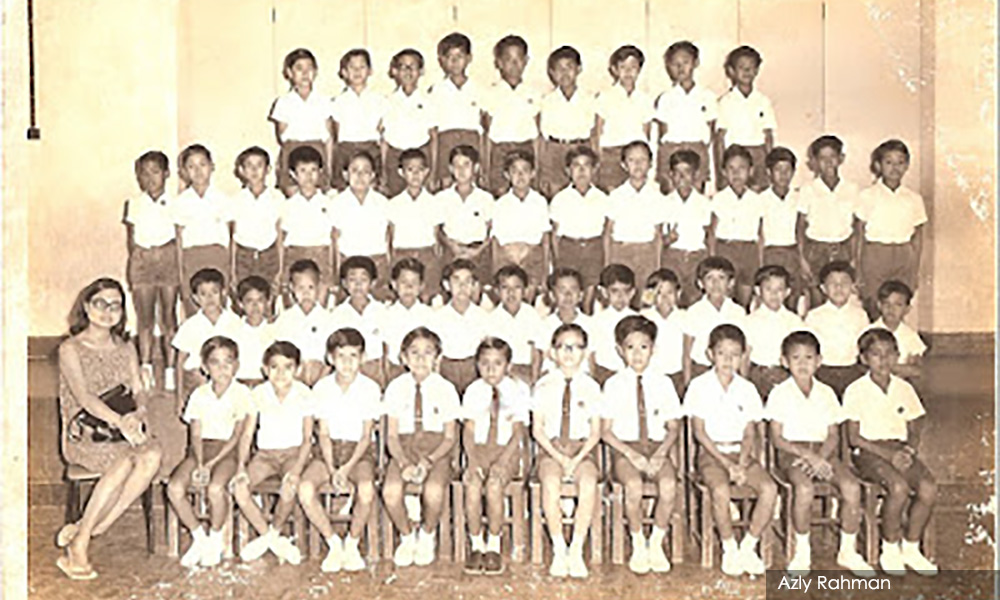
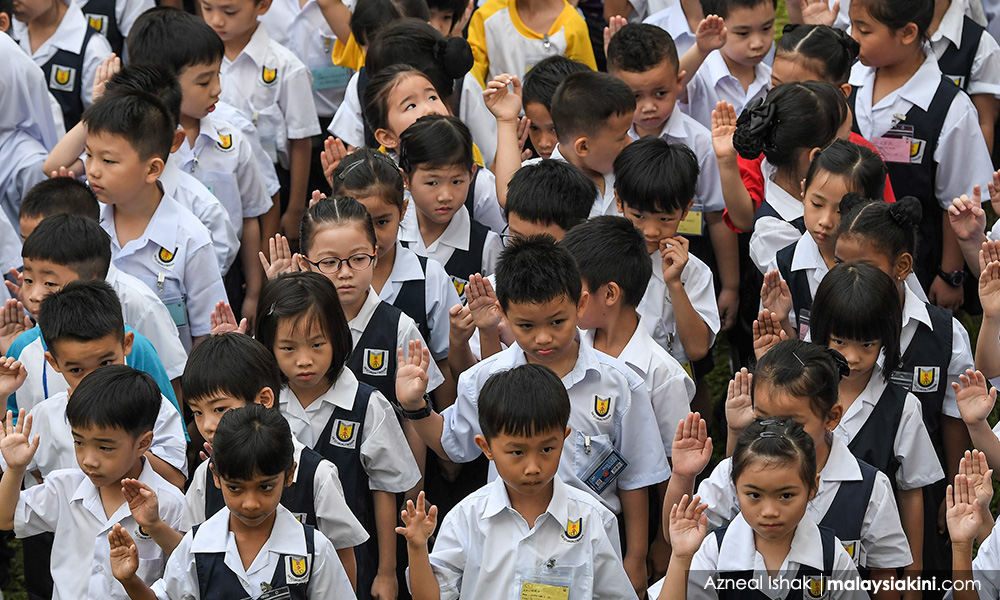
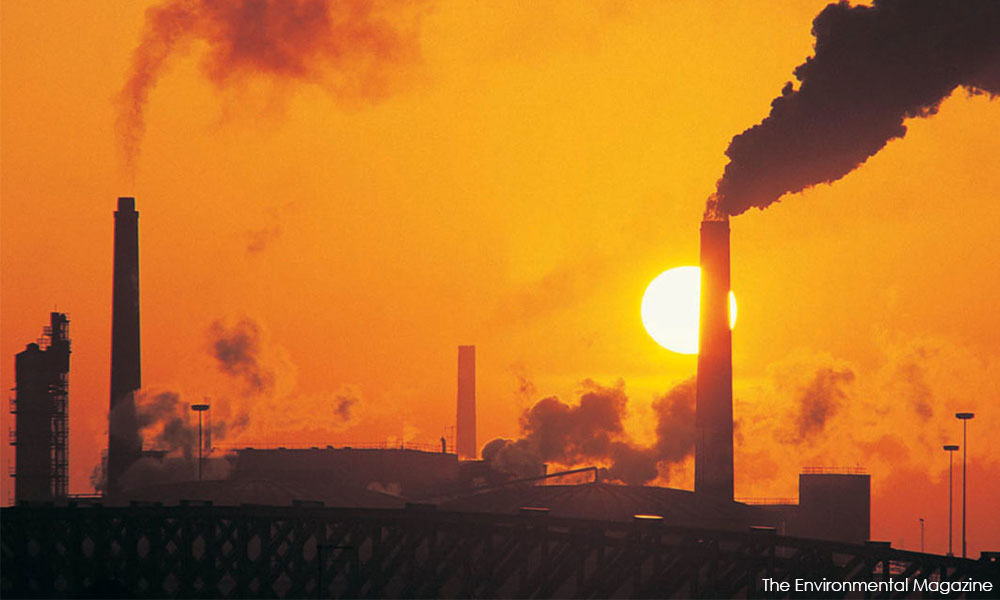
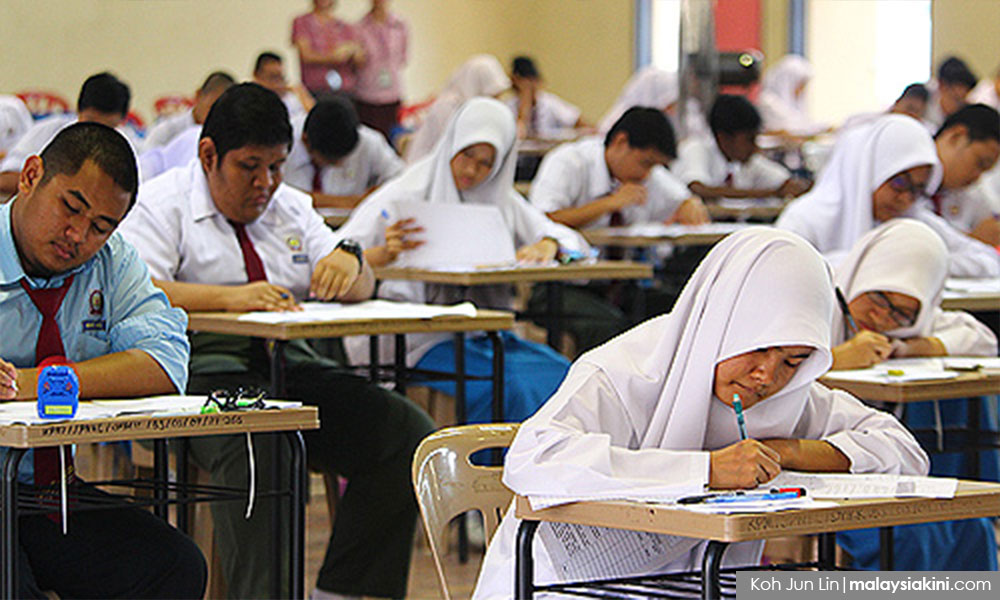
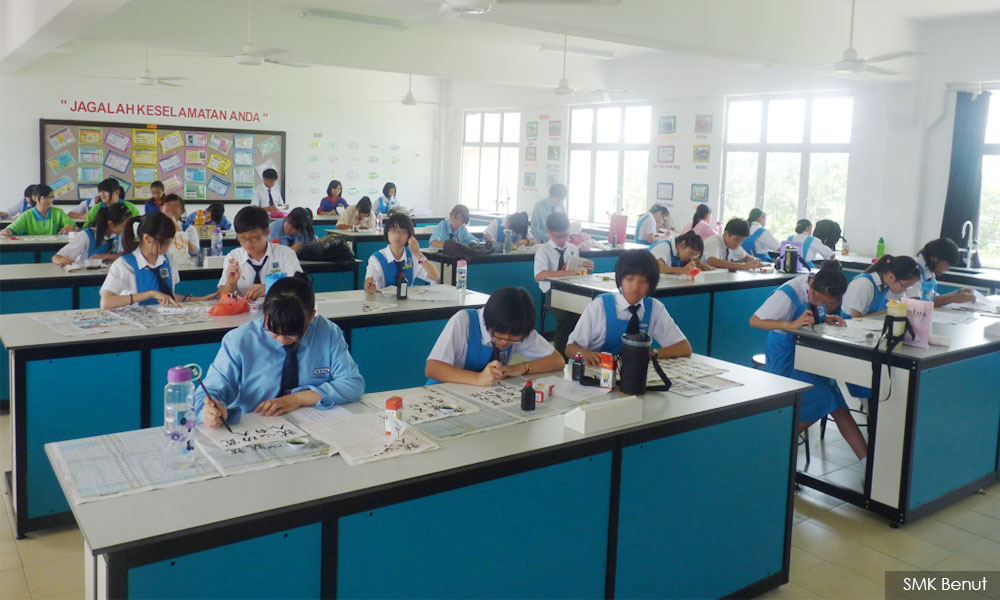
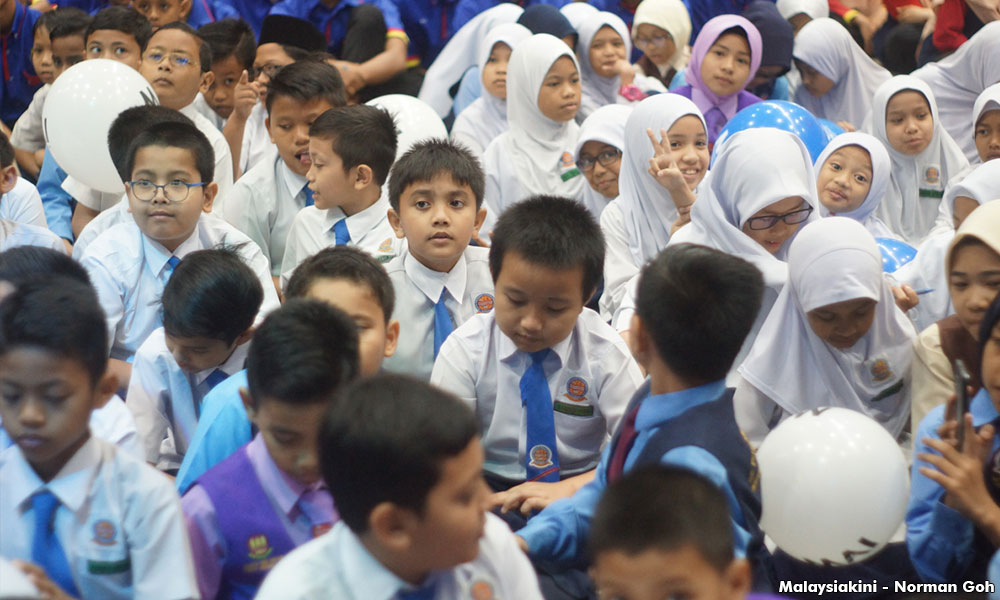

(2).jpg)
No comments:
Post a Comment